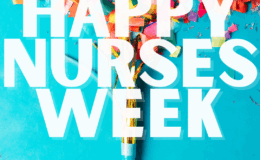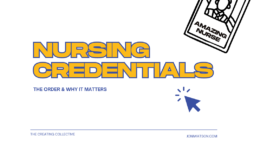A few weeks ago I asked others if they knew how to stop a healthcare professional bully. Most people stated they weren’t sure, and honestly I was right alongside them. I think I know what to do in a bullying situation. I think. But I want to know for certain.
There are proven strategies to deter disruptive behaviors among healthcare professionals. Dr. Joy Longo, author of Combating Disruptive Behaviors: Strategies to Promote a Healthy Work Environment (2010), discusses zero-tolerance bullying policies, naming disruptive behaviors as verbal codes (i.e. “code green,” etc.) to identify the situation when it occurs, education about disruptive behaviors and self-awareness, daily managerial rounding, and non-verbal body language such as standing near a colleague being bullied. Other authors cite similar strategies including whistle-blower policies protecting those who disclose disruptive behaviors among colleagues. Dr. Patricia Rowell (2011) stresses the importance of “cognitive rehearsal” to prepare for an encounter to stop a bully’s violent cycle. Dr. Wendy Leebov calls the disruptive behavior verbal code a “respect signal,” which has a nice ring to it. She also mentions other strategies such as assertiveness training, deliberately focusing on building the relationship between one nurse and one physician at a time, providing direct feedback about the situation without anger, and removing yourself from the situation. All three links above are worth a click (and read!). If you only have a few moments, though, definitely read Dr. Leebov’s blog post. It is about nurse-physician relationships, but it can be easily used for disruptive behaviors among all healthcare professionals.
What is your organization doing to combat disruptive behaviors among healthcare professionals?







The Nerdy Nurse
June 28, 2011 8:39 amWhat are they doing?
Nothing.
However, I agree that the “zero-tolerance bullying policies” is a clear way to combat the problem, but unfortunately one that many healthcare organizations refuse to adopt. I also think a whistle-blower policy and adherence to open-door policies should be maintained.
When I was bullied I was met with frustration and requests for me to “be the bigger person”. I was always made to feel at fault for not just wanting to sit there and take it.
nursetopia
June 28, 2011 8:51 amFrustrated to hear that. With all of the literature about lateral violence/bullying/disruptive behaviors, institutions are definitely putting themselves and their human resources at risk. From everything I read, it is clear leadership is key in creating healthy and violence-free workplaces.
Good for you for not sitting by the wayside. I hope you can effect change!
Roseann
September 14, 2011 7:13 amI find a good number of managers very uncomfortable in handling the incidence of bullying within their departments. The typical response, though professional and managerial, is to instruct the victim to handle it themselves. Sadly, this a great way to discredit the employee who is genuinely seeking help from leadership regarding a threatening situation which targets personal and professional integrity.
As nurses, we advocate for those in need. However, why do we have trouble applying this and other nursing principles within our own lives? In regards to workplace bullying, we need to get past the level of posters and educational inservices in addressing this issue.
Another observation – I have witnessed significant passive-aggressiveness and covert bullying by those in nurse-leadership positions. As one who floats to multiple units, I’ve observed how such behaviors infect the disposition and culture of a particular department, breeding more of the same and lowering moral. Similarly, the opposite is true of departments exhibiting healthier behavior.
I have taken the stance that I personally must learn and practice “health” in my own life in order to deal with such dilemmas and not feed into workplace “illness”. Unfortunately, I have had to make the decision to leave areas where I have not felt supported in this train of thought. However, such negative experiences have taught me greatly. Never has health and holism made more sense to me as they do now.
My last thought: Will we see more of this as political, economic, and social woes continue to place tension on the existing healthcare structure?